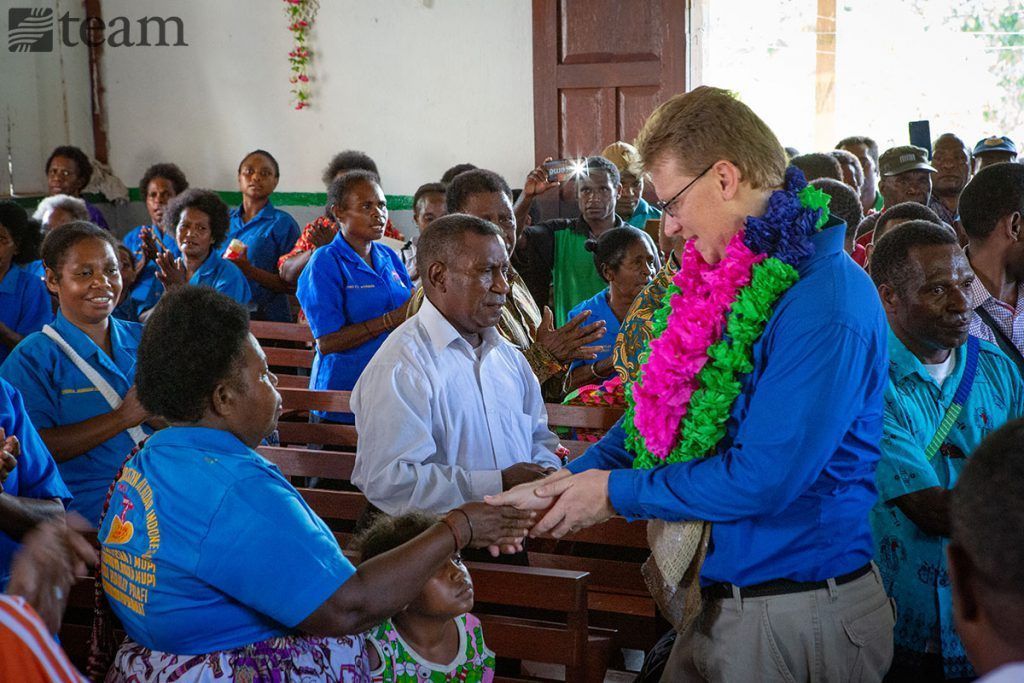If you’re an aspiring missionary, COVID-19 may seem like a major roadblock to your plans. Short-term trips are being postponed. Carefully planned timelines for departure are now in shambles. And everyone keeps talking about how “the world will never be the same.”
But Beth Fussner, a former missionary and TEAM ’s learning and development project director, sees things with a bit more optimism.
“There’s so many times when God’s people were on delays and detours. … And all of those things, when you look at the Scripture, at the stories, you realize that God either caused them or used them ,” Fussner says.
Like many in the cross-cultural ministry world, she thinks people preparing for missions during COVID-19 have a distinct advantage. But first, aspiring missionaries need to understand what’s being handed to them.
A Sneak Peek at Culture Shock
No matter how many missionary biographies you read, you can’t truly know what missionary life is like until you live it. A large part of this is culture shock — that sense of cultural disorientation you get when immersed in a different society.
If you’ve been on a short-term mission trip , you’ve probably experienced a measure of this. But even then, you could rest in the fact that you were returning to your home culture soon.
Long-term missionaries don’t have that comfort. And now, neither do we.
We’re all walking through culture shock.
Remember the first time you walked into a grocery store in mid-March 2020? Trying to figure out what was actually available? Wondering if you could find it at another store?
Missionaries face something similar when they move abroad. Suddenly, everyday necessities are rare, valuable finds at the grocery store.

In part, culture shock means not knowing society’s rules or what is safe. Sound familiar? Preparing for missions during COVID-19 lets you see how you deal with culture shock right now.
Or consider masks. Did you ever imagine a day when being surrounded by people in masks would make you feel safe ? Or when people might judge you as either fearful or irresponsible based on whether you did or didn’t wear one?
In a new culture, Fussner says, “the societal norms of what makes you feel safe or threatened are completely different. … And you’re not really sure how to read what is appropriate, what is not appropriate.”
It can be frustrating, frightening and depressing all at once. But this season of culture shock can also be much more.
With the right strategies, preparing for missions during COVID-19 can give you knowledge most missionaries never have until they hit the field. And even as things reopen, continual reflection how you dealt with limitations will give you unique insights to yourself.
Learn from Your Anxieties and Outbursts
One of culture shock’s hallmarks is a globalized sense of anxiety. There’s so much to navigate, and it’s so hard to know which threats are real, that you just carry anxiety about everything.
Many of us have found ourselves in that place during COVID-19. But Fussner says now is the time to press into those anxieties.
“Because we’re challenged in different ways, we find out more things about ourselves,” Fussner says . “So, let it be a learning time. … How do I respond when I don’t have control? How do I respond when I can’t do the things I want to do? Or when I’m disappointed?”
As you ask those questions, use this time to create healthy habits . How will you go about finding information that can help you? How will you find joy in the midst of trials? How will you continue seeking God ?
Many missionaries get to the field and discover weaknesses. This is your chance to get a head start on learning how you need to grow. And if you’re reading this post-COVID-19, you can still reflect back on what challenged you and where you thrived.
For more helpful questions to ask during this time, check out TEAM’s Missions Readiness Assessment Guide! This is a great time to look at the sections on spiritual, mental and relational health. Get your free copy here .
Find Joy in the Simple Things
Shortly after Fussner arrived in Indonesia as a missionary, she and her husband went on a vital mission. It felt like ages since they’d had a cold beverage, and they were determined to find one.
“We managed to get to this store, and we bought ourselves a cold Coca-Cola … and felt like champions,” Fussner says.
Perhaps you’ve found yourself in a similar situation recently. You found that package of toilet paper, or made your first loaf of bread, or you connected with your never-at-home neighbor.
Celebrating these simple victories can be the key to joy when everything else is confusing and unfamiliar . Learn to enjoy them now, and you’ll carry that habit with you into the mission field.

Being able to find joy in the midst of unknowns is a key to success as a missionary, and it’s something we’re all learning in the midst of this pandemic.
Trust God to Answer Simple Prayers
If God has called you to anything, He will make the way for you to do it. But in our ordinary lives, we get wrapped up in all the things we can do to help God along. We pray for every possible contingency.
Living in the unknown forces us to pray more simply : “Lord, show me where I can find safe drinking water.” “Who can help me find the information I need?” “God, I just need a friend.”
On the mission field, Fussner was overcome by fear that her house would be broken into. It was her last thought at night and her first thought every morning. Finally, she prayed, “Help me with this fear. I just can’t be having this fear constantly.”
Within days, Fussner received a handwritten letter from an old friend, saying God had asked her to share Psalm 91:10 with her: “… no harm will overtake you, no disaster will come near your tent.”
God stands ready to give you what you need, so start practicing simple prayer now . Ask God directly for what you need, expect Him to be faithful and celebrate that faithfulness.
Press into Relationships
In the midst of COVID-19 lockdowns, people are marveling over what they’ve learned about their family members and roommates. Living in close quarters has stressed relationships in many new ways .
“We are learning to give one another grace,” Fussner says, “and it becomes an intentional journey of saying, ‘I can’t run away from you, and I’m not going to run away from you, even emotionally.’”
That lesson is critical for missionary life. Expatriate communities have to be tightly knit because they depend on each other — for navigating daily life, for fellowship, for spiritual fulfillment and more . So, if your instinct is to run from relational conflict, you will struggle on the mission field.
But preparing for missions during COVID-19 gives you the chance to build healthy habits of communication and reconciliation. If you’re going to the field as a family, talk about how you’ll handle conflict. Learn each other’s vulnerabilities so you can build each other up. If you commit to growing together, you’ll come out stronger.
Learn to Live with Ambiguity
Pandemic or not, missionary plans change all the time. Maybe you don’t raise your support as fast as you thought you would. Or your visa doesn’t come through. Or you have a thriving ministry, and a new government official brings it to a halt.
Ask any missionary what qualities new missionaries need, and flexibility is bound to be on the list .
So, if COVID-19 has hindered your plans for missionary life, thank God for the lesson. This won’t be the last delay or disappointment you have while serving on the mission field. But it can be the foundation for a habit of taking your troubles to God.
Remember to pray simply. Tell God exactly what you are afraid will happen — or won’t happen . And if that thing happens, what are you afraid will be the result?
Then, ask God to show you what you can do right now .
Fussner suggests, “If you’ve never led a Bible study or discipled someone … that’s a good time to say, ‘Lord, I see these areas where I can grow in. Help me to know which ones of these I can take steps in now.’”
Even when your timeline is unsure, keep moving toward your goal, trusting that God will either bring it to pass or shut that door.
Remember that God is Faithful
Ultimately, if God wants you on the mission field, He will get you there. Even during the worst of COVID-19, aspiring missionaries were raising support and current missionaries were finding new ways to serve.
Life may look uncertain, but God is our sure foundation .
Don’t give up on the calling God has given you. Ask what He wants to teach you, and prepare for a life like nothing you could imagine.




















